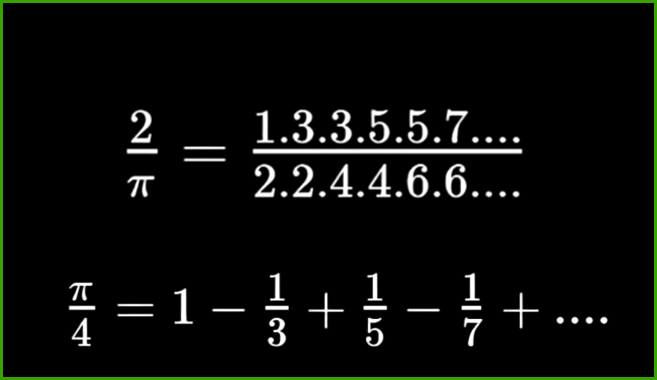Ah, pi. The most popular of the irrationals. Its expansion goes on forever, in any base, with no way to predict which number will come next; it’s so unknowable that even NASA only bothers learning around 15 digits, and they put people on the Moon.
But just because we can’t write pi using numbers – at least not without infinite time and space at our disposal – that doesn’t mean we can’t do it at all. There are actually many ways to express the constant exactly – you just need to be a bit tricksy about it.
And that’s precisely what a team of physicists at the Indian Institute of Science claim to have done: using an infinite series representation, they appear to have found a way to express pi that has so far gone completely unnoticed by mathematicians and scientists. And the best part? They did it entirely by accident.
“Our efforts, initially, were never to find a way to look at π,” said Aninda Sinha, Professor at the Center for High Energy Physics (CHEP) and co-author of a new paper containing the formula, in a statement on the discovery.
“All we were doing was studying high-energy physics in quantum theory and trying to develop a model with fewer and more accurate parameters to understand how particles interact,” he continued. “We were excited when we got a new way to look at π.”
So what’s the secret? Well, it all comes down to the idea of infinite series. These are – well, they’re exactly what they sound like: a sum, or perhaps product, of the terms of an infinite sequence. That may not sound much easier than “an infinite list of pseudorandom numbers” in terms of usability, but the results are pretty amazing; not only can they be extremely useful for calculating the digits of pi itself, but they’re often also quite beautiful, mathematically speaking.
“One of the earliest [infinite series for pi] was that of Wallis,” noted mathematicians John Joseph O’Connor and Edmund Robertson back in 2001, “and one of the best-known is […] seems to have been first discovered by James Gregory.”

The formulas from Wallis (top) and Gregory (bottom), with the latter often misattributed to Leibniz.
Image credit: IFLScience
“These are both dramatic and astonishing formulae, for the expressions on the right are completely arithmetical in character, while π arises in the first instance from geometry,” they wrote. “They show the surprising results that infinite processes can achieve and point the way to the wonderful richness of modern mathematics.”
But while they may be pretty to look at, there’s a reason the search for infinite series for pi didn’t stop there. “From the point of view of the calculation of π, however, neither is of any use at all,” O’Connor and Robertson pointed out. “In Gregory’s series, for example, to get 4 decimal places correct […] we need about 10000 terms of the series.”
The formula that Sinha and his colleague, postdoc Arnab Saha, stumbled onto, however, is comparatively light-speed. It’s actually closely related to Gregory’s series – referred to in the paper as a Madhava series in recognition of its earlier discoverer, the 14th-century Indian mathematician and astronomer Madhava of Sangamagrama – but arrived at through entirely different means.
The novel route means that the pair was able to vary a certain constraint in the formula to maximize its efficiency: “While [the Madhava] series takes five billion terms to converge to ten decimal places, the new representation with 𝜆 between 10 and 100 takes 30 terms,” the team boasts in the appendix to their paper.

The new formula for pi.
Image credit: IFLScience, formula from Saha and Sina, Physical Review Letters 2024
Which just leaves one question: why, after 700 years of calculating pi with series, did nobody notice this representation before now?
To answer that, Sinha simply points to the rest of the paper. “Physicists (and mathematicians) have missed this so far since they did not have the right tools,” he explained. “[These] were only found through work we have been doing with collaborators over the last three years or so.”
The study is published in the journal Physical Review Letters.
Source Link: Physicists Accidentally Discover A Whole New Way To Write Pi